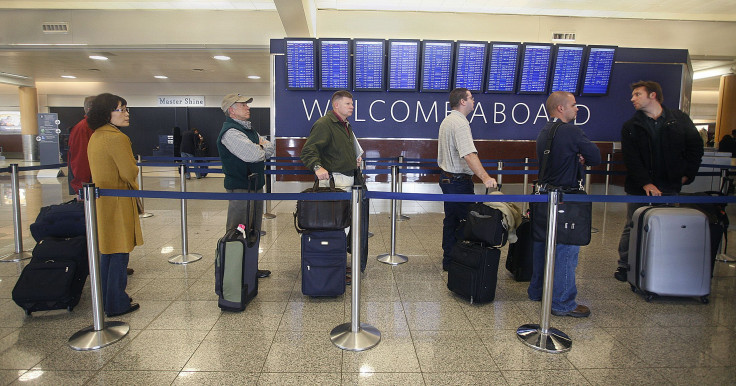Are Airlines’ Hidden Fees A Form Of Free Speech? Supreme Court Says No

The pesky little asterisk is gone from airfare prices for good now that the U.S. Supreme Court has dismissed an airline-industry challenge to making all airlines prominently display the total cost of a ticket.
Several U.S. airlines argued that it’s unfair for them to have to disclose the total cost of a ticket to passengers, but the Supreme Court begged to differ. The justices left intact the U.S. Transportation Department mandate requiring airlines to show the total cost of air travel on all ads and online marketing -- rather than a lower (and arguably misleading) pretax price.
Solicitor General Donald Verrilli urged the court to reject the airlines' petition.
“[The rule] constitutes a reasonable exercise of the department’s longstanding authority to prevent consumer confusion in airfare advertising,” he wrote in court papers.
Spirit Airlines Inc., with support from Southwest Airlines Co. and Allegiant Air LLC, argued that the rule violated carriers’ freedom of speech by preventing them from emphasizing the impact myriad fees and taxes have on their total costs.
Regulators, the companies contended in court papers, were blocking them “from drawing clear and conspicuous attention to truthful information about the significant tax burden on airline tickets at a time when the administration is pushing to raise those taxes even higher.”
“Such a government effort to micromanage how speakers communicate the burdens of taxation would raise serious First Amendment concerns in any industry, but they are doubly problematic in an industry Congress specifically chose to deregulate,” former Solicitor General Paul Clement wrote in his brief for Sprit Airlines. “This regulation is an unconstitutional limitation on speech critical of the government, as it restricts carriers’ ability to convey truthful information about the significant tax burden on air travel.”
The Supreme Court rejected this claim, as well as the argument that the federal government sought to assert authority in contravention of a 1978 law that deregulated the industry. It also kept other Transportation Department requirements, including passengers’ right to cancel a reservation penalty-free within 24 hours after purchase, so long as the flight is not within seven days.
A federal appeals court similarly upheld the rule last July in a 2-1 vote, saying it was a legitimate use of the Transportation Department’s power to regulate deceptive industry trade practices.
The Business Travel Coalition, an advocacy group for business travelers, said Monday’s ruling was “the last airline-imposed barrier to the DOT moving forward with a much-needed rulemaking that will hopefully restore true comparison shopping of the all-in price of airline travel.”
“There is a full-throated airline assault on price transparency and the consumer,” BTC Chairman Kevin Mitchell said. “Today, Allegiant, Southwest Airlines and Spirit Airlines represent ‘Exhibit A’ in this offensive against consumer protections in an industry, unique, because its has so few of them.”
Previously, Sprit Airlines would advertise base fares as low as $9 and only later in the reservation process disclose the full fare. Both business and leisure travelers had long complained of being snookered into purchasing flights this way, with deceptively low initial prices that climbed substantially higher once all taxes and fees were accounted for.
Under the current policy, airlines must show “the entire price paid by the consumer.” Those who wish to give a breakdown of taxes and fees separately from the total price must do so using a smaller type size and cannot display the itemized costs at the top of the page.
© Copyright IBTimes 2024. All rights reserved.






















